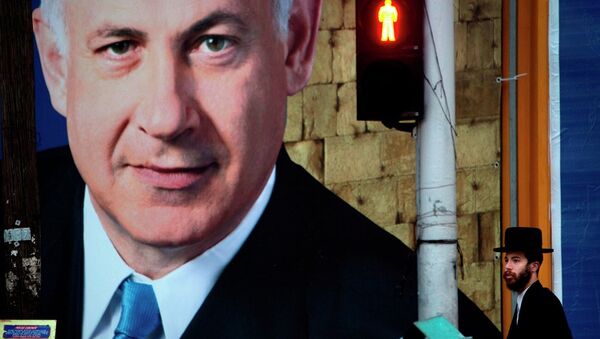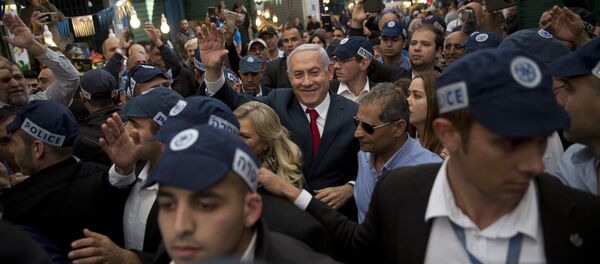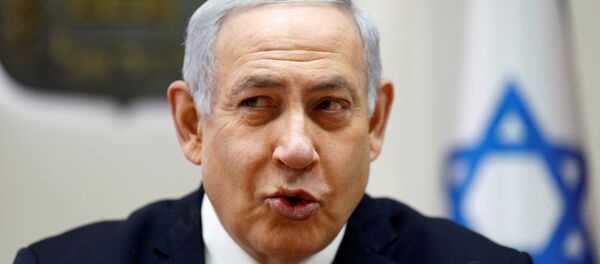In total, there are a record number of parties in the running for 120 Knesset seats — the party which ends up with the most will be invited by President Reuven Rivlin to form a bloc with other parties and create a majority government. If that party can't, the second place party will get the opportunity.
It's a similar story in most democracies — however, Israel's political system is unique in many ways, and diverges significantly from the ‘norm' in key areas.
How It Works
Instead they choose from a list of parties, and the parties are then apportioned seats based on their resultant vote share. The electoral threshold for a party to gain a Knesset seat was only one percent until 1988, when it was raised to 1.5 percent. It was raised to two percent in 2003, then 3.25 percent in March 2014 — any party breaching this threshold automatically gains four parliamentary seats.
Party Party Party
In 2019, parties are running under 13 groupings — Likud, Labor, Blue & White, Kulanu, Shas, Ra'am-Balad, United Torah Judaism, Hadash-Ta'al, United Right, Meretz, Yisrael Beiteinu, New Right and Gesher. In 2015, 10 such alliances ran, and of those only four are in the race this time — several of the bodies vying for representation this time round were only recently formed, such as Blue & White and New Right. Party fracture and dissolution is very common in Israeli politics — of the 15 parties that won representation in Israel's 1988 election, only five are represented today — moving back further, none of the 12 parties elected in Israel's first parliamentary elections in 1949 exist today.
Tzipi Livni, perhaps the country's most influential female politician, has been particularly promiscuous — she was a member of Prime Minister Benjamin Netanyahu's Likud 1999 — 2005, then defected to form Kadima, a centrist party supporting Israeli withdrawal from Gaza, then in 2012 defected again to form Hatnuah.
Mere weeks after the election was announced, nine new parties were formed — although overall, due to sheer electoral mathematics, it's a fair bet only around 10 parties or alliances in total will surpass the representation threshold in 2019.
It's not certain how many of those parties will represent Israeli Arabs, although the demographic spoilt for choice. Despite making up just 20 percent of the country's population, they've three parties to choose from — United Arab List, Balad, and the union Hadash-Ta'al, the former a ‘big tent' secular party, the latter a left-wing endeavour. In 2015, all four ran together under the ‘Joint List' grouping, which gained the third largest vote share in the Knesset — although this only amounted to 13 seats.
Meet the Old King
Netanyahu can rely on the support of several groupings once the election is over, and has received vehement backing from US President Donald Trump, popular with many Israelis for moving the US embassy to Jerusalem, among other things. However, Gantz eating into Netanyahu's majority is likely. Regarded as principled and patriotic, he's a newcomer to politics, although to boost his electoral credentials the Blue & White grouping (a reference to the colours of the Israeli flag) has brought together many former lawmakers and ministers. Given Israelis' understandable concerns about security and defence policies, his military background is an obvious vote-winner — former Prime Ministers Ehud Barak and Yitzhak Rabin both served as the IDF's Chief of Staff — as is his ‘anti-establishment' positioning. However, his politics are far from radical — he's far more concerned with opposing Netanyahu than revolutionising the Israeli state.
Moreover, some observers have suggested whatever the election's outcome, Israeli politics is already entering the post-Netanyahu era. Technically, even if convicted he isn't compelled to resign unless and until the conviction is upheld after an automatic appeal — although he'd surely face significant political pressure to step down long before that. Netanyahu seems confident the charges will be dropped, claiming they're without substance and part of a political witch-hunt — a stance many of his supporters echo — but the Attorney General has outlined a fairly extensive case against him, and Netanyahu's optimism isn't shared by many analysts. Some of his Likud colleagues are already said to be manoeuvring to replace him as leader, and his usually-dependable coalition partners may wish to avoid being perceived as supporting a corrupt administration.
Still, Netanyahu hasn't been a dominant force in Israeli politics for so long for nothing — a masterful political operator, even his opponents have variously dubbed him "the magician", "the winner" and "melekh yisrael" (King of Israel).







